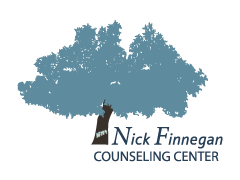Grief & Community During COVID-19
By Audrey Omenson, MA, LPC-S
With the sudden and rapid spread of COVID-19, most of the humans on the planet have experienced loss of some sort. This loss can take many forms, including loss of: ability to move through the community with freedom, income, ability to make plans, in-person connection with others, food options, predictability, trust in larger systems, sense of control and safety, resources and support, and even physical health and/or life. This change has left many of us reeling and scrambling to adjust. What many may not realize is that the underlying emotional process that most of us are dealing with is not stress (though, stress is definitely part of it). What we are really dealing with is grief. Grief is not reserved solely for physical death, it is an important emotional process that a person or community goes through whenever there is change or loss of any form.
Here are a few examples of what the grief process may look like in response to COVID-19 (according to the modified Kubler-Ross model[1]):
- Shock: Feeling frozen or paralyzed, wanting to “hide under a blanket,” unsure of what or how to proceed
- Denial: Attempts to keep life “normal”, refusal to change behavior, a frantic desire to accomplish to-do lists, keep busy, exercise or otherwise stay busy and distracted. Shutting down one’s own feelings because they feel too overwhelming or because someone else has it “worse” than you do.
- Anger: “Exploding” easily on others on a regular basis, frequent frustration toward people or systems and how they are handling the situation, anger about being in this situation to begin with
- Bargaining: Beliefs like, “If sanitize my home enough, then my family will be safe” or “If I pray regularly and trust God, no one I love will die from the virus.”[2] It can also look like beliefs that one specific plan or strategy can guarantee an end to the pandemic and its long-term effects.
- Depression: Feelings of sadness or resignation, realization that there is no easy or quick way out of this, and feelings that there is no meaning in the order or events of the world
- Acceptance: Acknowledgement that “real life” isn’t on pause. This is real life. And though it is painful, scary and filled with a lot of unknowns, one can choose one’s response.
It is important to recognize and move through these stages because unacknowledged grief impacts all of the other areas of one’s life. Stuffed or ignored emotions do not go away; they build over time and eventually come out in unpredictable and often destructive ways. You are allowed to grieve the hopes you had for the year, the inability to make plans and celebrate milestones, and the distance from loved ones just as much as you are allowed to grieve actual death. It is only by acknowledging and accepting our own grief that we are able to find peace, meaning and purpose in the face of something as overwhelming as a pandemic. In a recent New York Times article by David Brooks, he wrote: “Viktor Frankl, writing from the madness of the Holocaust, reminded us that we don’t get to choose our difficulties, but we do have the freedom to select our responses. Meaning, he argued, comes from three things: the work we offer in times of crisis, the love we give and our ability to display courage in the face of suffering.”[3]
Name your emotions, set aside time each week to feel what is going on internally, journal, go for walks, talk with people that are safe, find a therapist, create something, give yourself permission to feel it and to express it. Offer your work, give your love and practice your courage. Ironically enough, grieving well is what will help us find hope.
[1] https://www.amazon.com/Death-Dying-Doctors-Nurses-Families/dp/1476775540
[2] Katie Hueni, MS, LPC-Intern. https://www.katiehuenicounseling.com
[3] David Brooks. https://www.nytimes.com/2020/03/26/opinion/coronavirus-meaning.html?referringSource=articleShare
